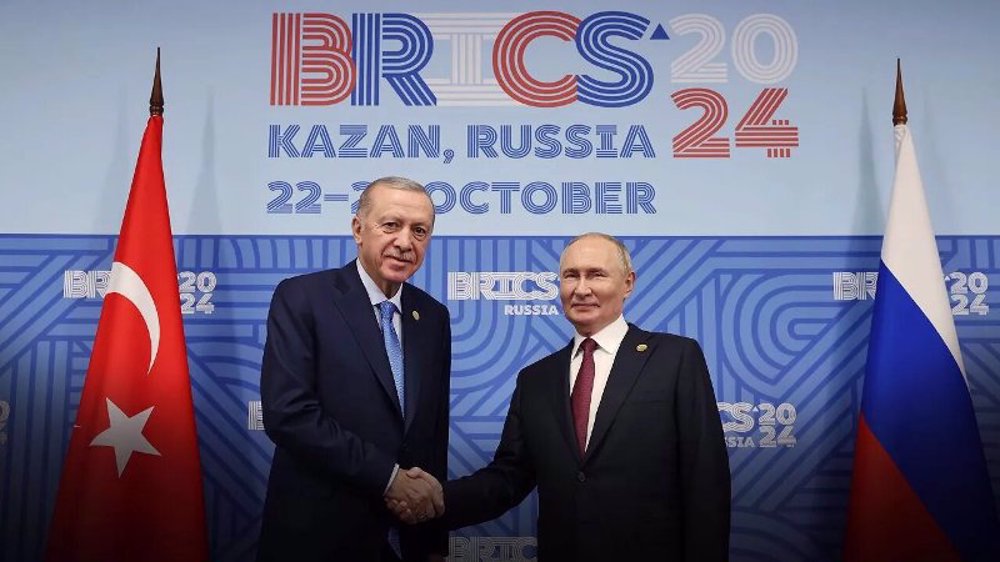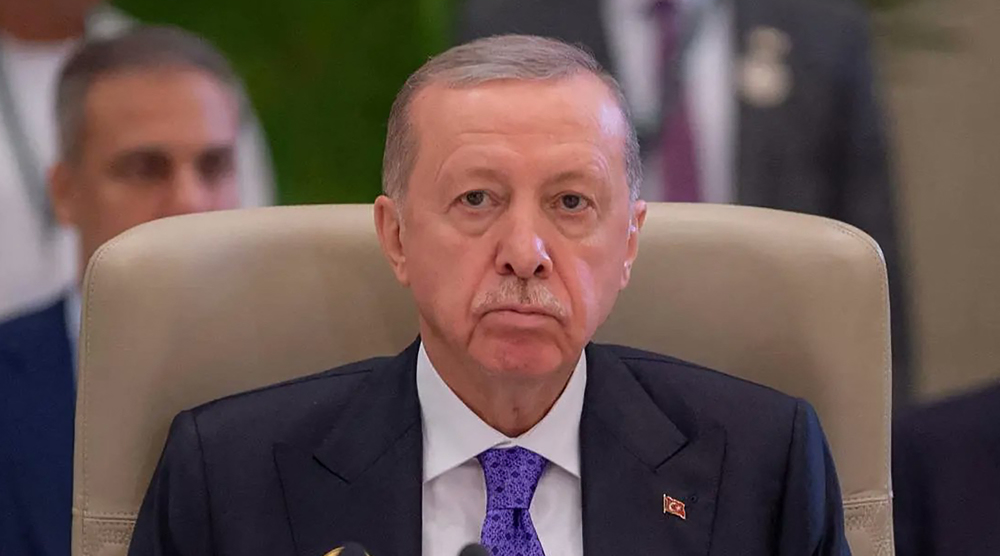Erdogan feels ‘uneasy’ about US support for Kurds
Turkish President Recep Tayyip Erdogan has used a meeting with US Defense Secretary James Mattis to relay his disappointment with Washington over its support for Kurdish groups in Syria, sources say.
In a meeting in Turkey’s capital Ankara on Wednesday, Erdogan told the visiting Pentagon chief that the ongoing military cooperation between the US and the Kurdish People’s Protection Units (YPG) made him feel “uneasy,” Turkish presidential sources said.
Ankara views the YPG as a terror organization linked to the Kurdistan Workers’ Party (PKK), a militant group that has been fighting the central Turkish government since 1984.
While the US acknowledges the YPG’s connection to the PKK, it also deems the group as an important element in the ongoing fight against the Daesh terror group in Syria.
Over the past months, Washington has been purportedly assisting the Kurdish group in its fight against Daesh militants controlling Syria’s Raqqah, the group’s main bastion in the conflict-ridden country.
Tensions between Turkey and the US aggravated in the wake of the YPG’s gains at the Turkish doorstep, including the capture in May of Tabqa town and the nearby dam from Daesh.
Mattis also discussed the issue with his Turkish counterpart Nurettin Canikli.
The Pentagon said in a statement that during his stop in Ankara, Mattis would "emphasize the steadfast commitment of the United States to Turkey as a NATO ally and strategic partner, seek to collaborate on efforts to advance regional stability, and look for ways to help Turkey address its legitimate security concerns - including the fight against the PKK."
Maintaining territorial integrity of Iraq, Syria
During their meetings, Mattis and Turkish officials agreed on respecting the territorial integrity of Syria and Iraq, amid moves by the administration of Iraq’s northern semi-autonomous Kurdish region to hold an independence referendum.
Besides the US and Turkey, many other regional and international players, including Iran, have warned against partitioning Iraq.
Read More:
Kurdish groups in Syria had also sought similar plans but were met with the same response.
VIDEO | Former FBI agent criticizes US Congress for 'outright corruption'
IRGC chief urges Muslim countries to cut aid routes to Israel
'New chapter in cooperation': Iran, Venezuela sing new MoUs
Jordan sentences former lawmaker for supporting Palestinian resistance
Basij volunteer forces hold massive drills in southwestern Iran
Israeli war criminals 'not welcome', US city says after ICC ruling
US vetoing of Gaza ceasefire resolution ‘disgraceful’: Iran’s UN envoy
VIDEO | IAEA adopts anti-Iran resolution tabled by E3











 This makes it easy to access the Press TV website
This makes it easy to access the Press TV website